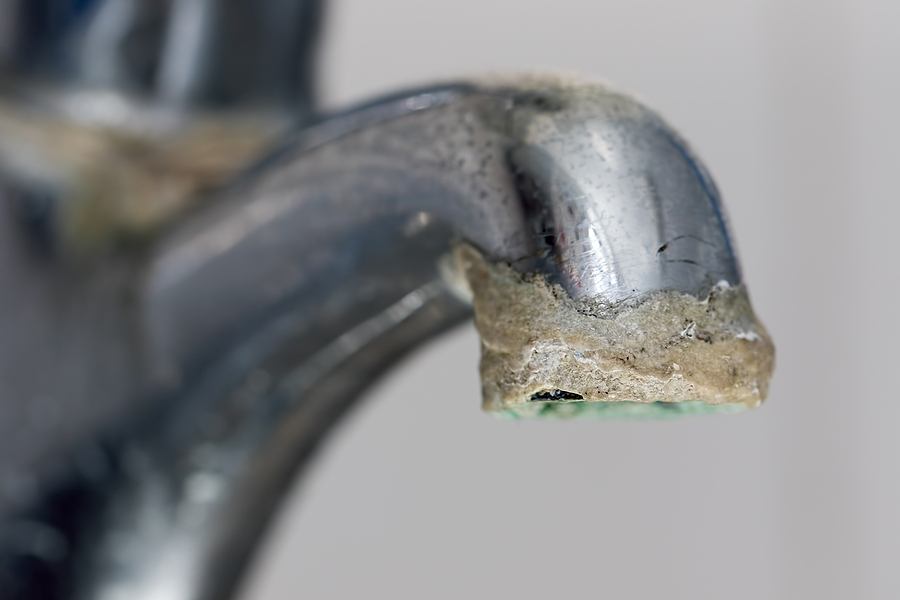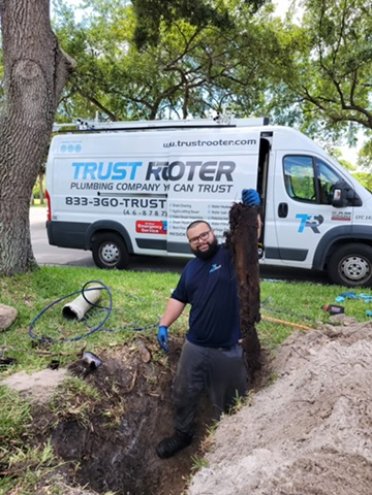Ways To Determine If You Have Hard Water
One of the most common plumbing problems in U.S. homes is hard water. If you live in a hard water zone, there’s a good chance you have hard water running through your pipes, unless you’ve installed a water softener. So, how do you know if you have hard water? What can you do about it?
Today, Trust Rooter Plumbing & Drain Cleaning walks you through some of the signs you have hard water and what you can do to resolve the problem. If you’re unsure if you have hard water, keep reading for the signs to watch out for. Remember, Trust Rooter Plumbing & Drain Cleaning is the plumbing service you can trust for all of your plumbing needs, including water filtration system installation.
What Is Hard Water?
Hard water is water that contains a high concentration of dissolved minerals, primarily calcium and magnesium ions. These minerals are picked up as water travels through rock formations and soil, and their presence can create various challenges in both household and industrial settings. While hard water is generally safe for consumption, it can lead to several issues in daily life, affecting appliances, personal grooming, and household cleanliness.
- White, Chalky Residue on Fixtures
A sure sign you have hard water is white scale deposits on fixtures. Hard water leaves behind mineral deposits on faucets, showerheads, and other fixtures. Over time, this white, chalky residue, known as limescale, can build up and create an unsightly appearance.
- Spots On Dishes and Glasses
Are you seeing residue on your dishes and glassware? That’s a sign of hard water. Dishes and glassware washed in hard water can develop unsightly spots and streaks. These are caused by the minerals reacting with soap and forming a film. These spots can be particularly stubborn and may require additional rinsing.
- Mineral Stains or Rough Textures on Your Clothes
Your clothes might feel stiff and rough after washing in hard water, and you may notice mineral stains on them as well. The minerals can make fabrics feel rough and less comfortable.
- Difficulty Getting Soap to Form a Lather
As if wreaking havoc on your clothes is not enough, the minerals in hard water react with soap, reducing its ability to lather. This can result in the need for larger amounts of soap for effective cleaning and may leave a soapy film on surfaces.
- Dry Skin and Dull, Brittle Hair
Washing with hard water can leave your skin feeling dry and itchy, and your hair can become dull and brittle. This is because the minerals in hard water strip the skin and hair of natural oils, leading to dry skin and dull, brittle hair. Individuals with sensitive skin may experience irritation.
Over time, mineral buildup can clog your pipes, leading to reduced water pressure throughout your home. This can impact the performance of appliances, such as water heaters and dishwashers.
Contact Trust Rooter Plumbing & Drain Cleaning for Water Testing and Water Filtration System Installation
If you suspect hard water in your home or business, reach out to a professional plumbing service to conduct an analysis and install a water softener. Here at Trust Rooter Plumbing & Drain Cleaning, we pride ourselves on providing water filtration system installation for both homeowners and businesses. Whether you have a well or rely on municipal water supply, our expert plumbers will install an effective water softener to safeguard you against the effects of hard water.



 Dec 20,2023
Dec 20,2023


